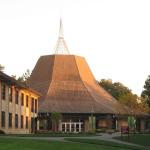John Fea thinks Greg Laurie, the senior pastor of Harvest Christian Fellowship who spoke at the White House recently, was a bit off when according to a report he reassured President Trump and guests with this historical insight:
Laurie reminded those in attendance for the dinner that the U.S. was “founded in a time of spiritual revival.”
“One of our founding fathers named George — not Washington but Whitefield, an evangelist from England — preached the Gospel and thousands of colonists came to faith in Christ and it brought about moral change in a culture as a revival always does,” Laurie said. “We were able to sow the seeds of this new nation in that receptive soil of morality based on a faith in God. I don’t think we could have done it without it. I mentioned that not only are we founded with revival, we need to have another revival.”
Fea was exasperated:
I don’t know where to begin.
Fea then traced Laurie’s views to Eric Metaxas’ book on American liberty.
But if Laurie had studied colonial history around the time that John Fea did, he would have surely read this article by Jon Butler, “Enthusiasm Described and Decried: The Great Awakening as Interpretive Fiction“:
American historians also have increasingly linked the Awakening directly to the Revolution. Alan Heimert has tagged it as the source of a Calvinist political ideology that irretrievably shaped eighteenth-century American society and the Revolution it produced. Harry S. Stout has argued that the Awakening stimulated a new system of mass communications that increased the colonists’ political awareness and reduced their deference to elite groups prior to the Revolution. Isaac and Nash have described the Awakening as the source of a simpler, non-Calvinist protest rhetoric that reinforced revolutionary ideology in disparate places, among them Virginia and the northern port cities. William G. McLoughlin has even claimed that the Great Awakening was nothing less than “the Key to the American Revolution.” These claims for the significance of the Great Awakening come from more than specialists in the colonial period. They are a ubiquitous feature of American history survey texts, where the increased emphasis on social history has made these claims especially useful in interpreting early American society to twentieth-century students. Virtually all texts treat the Great Awakening as a major watershed in the maturation of prerevolutionary American society. The Great Republic terms the Awakening “the greatest event in the history of religion in eighteenth-century America.” The National Experience argues that the Awakening brought “religious experiences to thousands of people in every rank of society” and in every region. The Essentials of American History stresses how the Awakening “aroused a spirit of humanitarianism,” “encouraged the notion of equal rights,” and “stimulated feelings of democracy” even if its gains in church membership proved episodic. These texts and others describe the weakened position of the clergy produced by the Awakening as symptomatic of growing disrespect for all forms of authority in the colonies and as an important catalyst, even cause, of the American Revolution. The effect of these claims is astonishing.
Sure, Laurie didn’t go to grad school for colonial history. But if you did, you might cut some slack to a fellow evangelical making grand claims that once had traction in the historical profession (and likely still do).












